How to Draw Hands Xabio Arts
How to draw hands
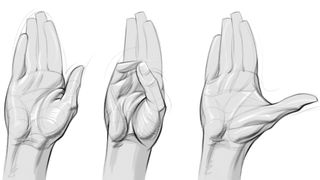

Learning how to draw hands can be a challenge. Even experienced artists have to study this skill with a dedication to master it. The human hand is a complicated piece of anatomy – and one of the most crucial – so learning how to draw hands is a vital skill.
This article includes two key lessons: on this first page, the concept artist Brynn Metheney shares a simple step-by-step guide for drawing hands, including tips on how to break down the forms of the hand into simple shapes like cylinders and spheres. From there, you can click through to page two for painter and graphic designer Stan Prokopenko's in-depth look at the anatomy of the hand – after all, you need to understand the underlying structure, in order to learn how to draw hands with accuracy and confidence.
To add to your practice on drawing hands, also see our guides to how to draw an arm, and how to draw a face. For more general drawing tutorials, see our piece on how to draw.
01. How to draw hands: a look inside

The human hand comprises bone, tendon, lots of connective tissue plus muscle and fat. It's a strong and flexible appendage. Getting to know how it's formed and how it works can really help you learn how to draw hands. It can be helpful to sketch out skeletal studies of human anatomy in general but, when learning how to draw hands, a lot of the form we know is lost at the skeletal level.
However, if we overlay a surface view on top of the skeletal view, we can begin to appreciate where the skeleton sits within our hands. Click through to page two for an in-depth look at the anatomy of the hand, so you can start to understand how the mechanism works and use that knowledge to inform your drawing.
02. How to draw hands: Break the hand into shapes

Tou can lay in broad shapes over the skeletal view in order to build the hand. Use a flattened wedge-like shape for the palm; rectangles for the digits and a teardrop shape for the thumb. You can use the skeletal image above as a base for this step (click on the icon in the top right to enlarge the image).
When learning how to draw hands, simplifying the forms like this will help to remove the pressure of rendering out a perfect hand from the start. From here, you can begin to fill out the shapes into 3D forms to help build the hand and pose it in perspective.
03. How to draw a hand: Build the hand in 3D
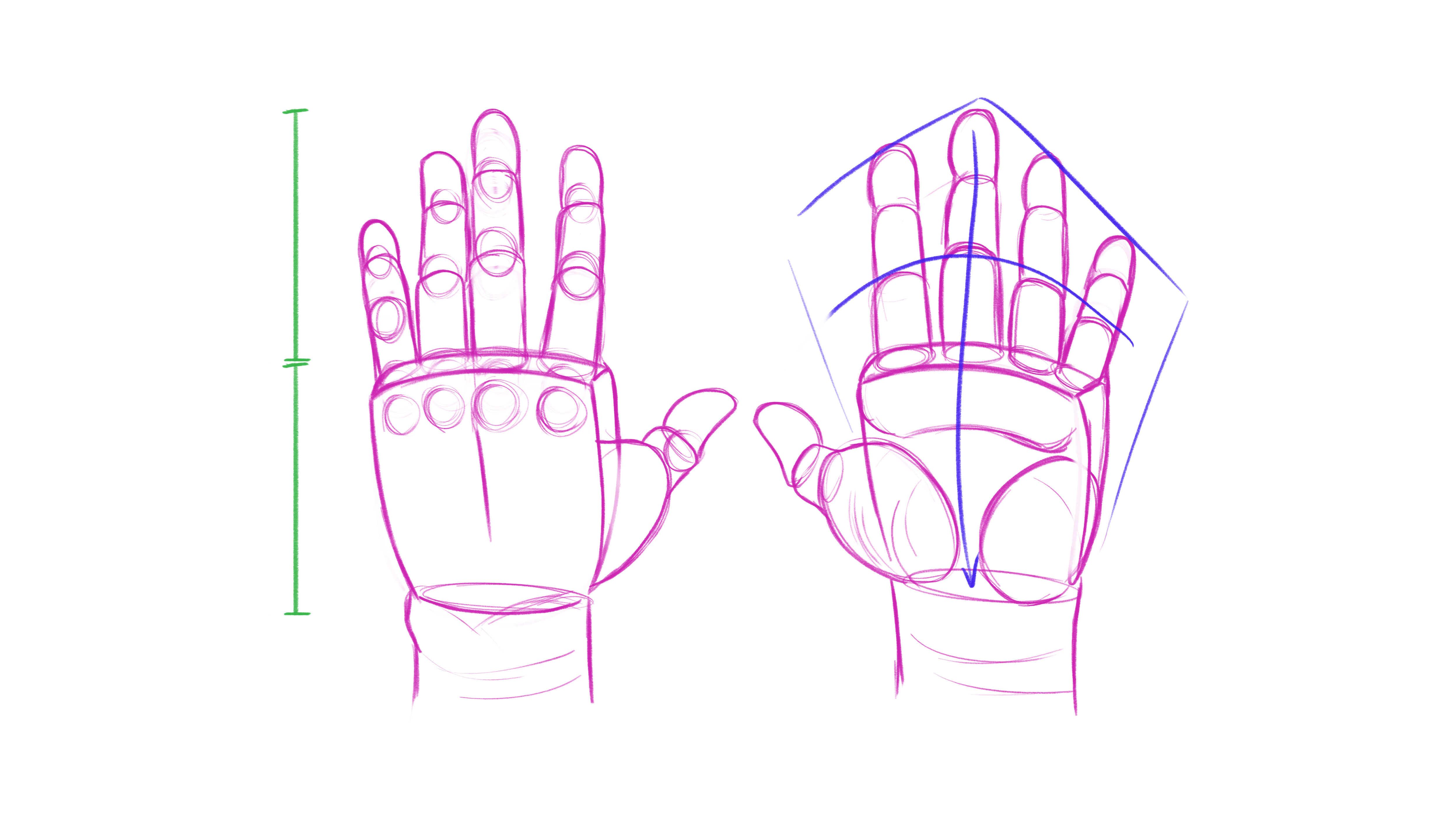
Now it's time to develop the forms to make the hand feel more 3D. Here, our flattened wedge for the palm gains another dimension, the fingers become cylinders and the joints become spheres. We'll call this view of the hand the planar view.
By drawing through our forms, we can show volume, as you can see above in the palm pads. This is also a good time to work on proportion and placement. Notice how the palm is about as long as the middle finger (the green lines indicate this). Remember that the fingers are never the same length or perfectly straight. What sells this is imperfection.
Note the blue lines indicating the angle at which the fingers end. We can also see that the middle finger stems straight from the middle of the hand. Paying attention to these proportions will help you ensure your hands look natural and accurate.
04. How to draw hands: Posing the shapes

Once you've drawn out the 3D version of your first hand, you can try out some poses. By breaking the hand into simpler forms and using contour to explore volumes, you can start to arrange the hand in different poses without worrying too much about detail.
You can use your own hands as a reference, but use the planar view to help keep it simple. This way, you can quickly draw out poses of hands without worrying too much about detail. In creating this tutorial, I found myself looking at my own two hands quite a bit. However, if you need to use your own hands to sketch, you might need to ask a friend or family member to help out.
Note the small diagram of the cylinder and sphere above. Fingers can be unruly at times – it's best to keep them very simple and utilise 3D shapes to represent them at this stage.
05. How to draw hands: Get started with planes
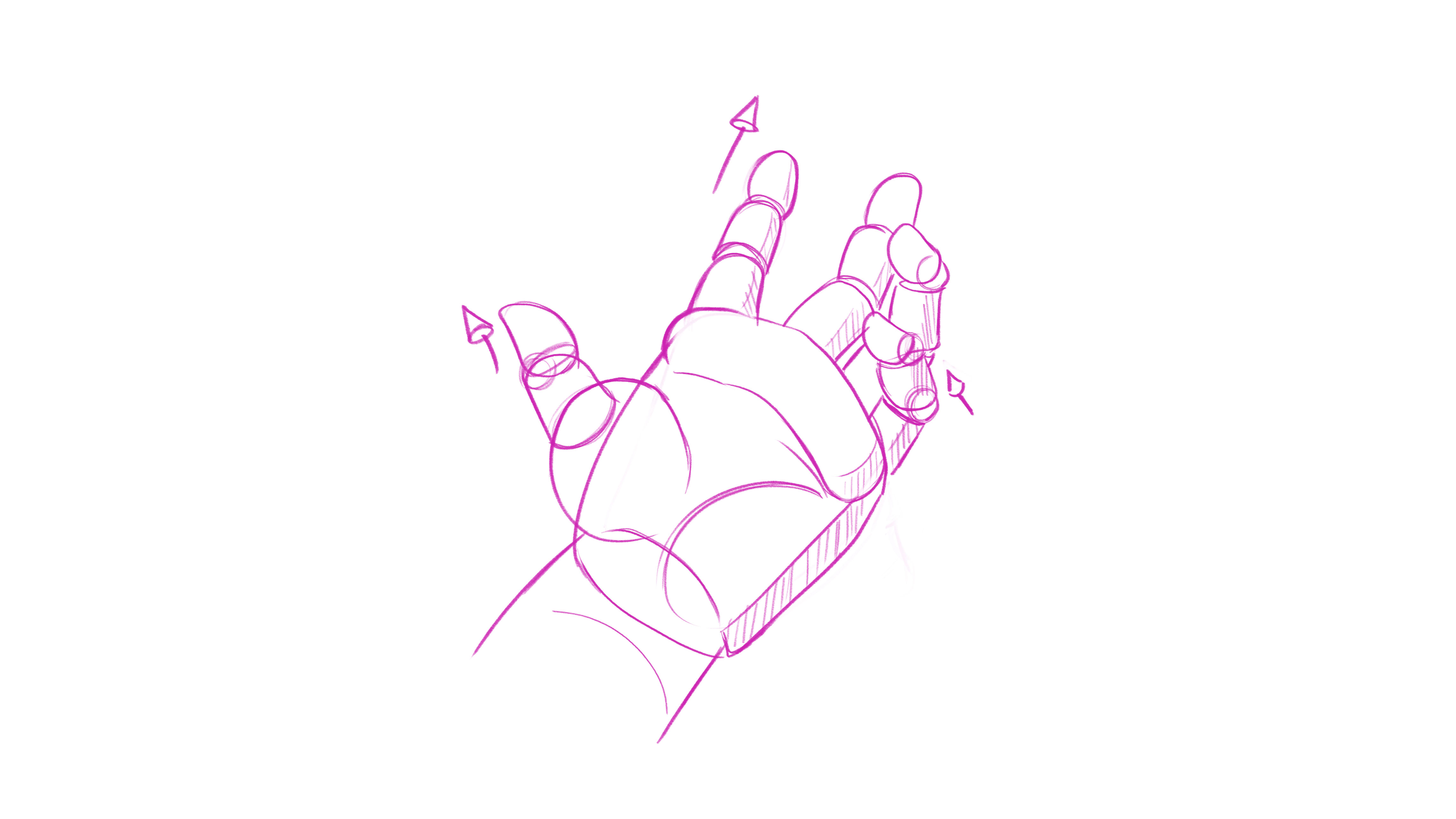
Once you've had some fun with posing, pick a pose that you like and, using your own hand as a reference, draw out the hand in the planar view. In the sketch above, the little cones indicate which way the cylinders are travelling. This can help you to keep a grasp on where the curves of the cylinders need to bend.
Again, we want to keep it simple at this stage and not worry about detail. You want to capture proportion, perspective and volume. Note that it's important to work lightly at this stage if you're using pencil.
06. How to draw hands: Finding gesture and forms
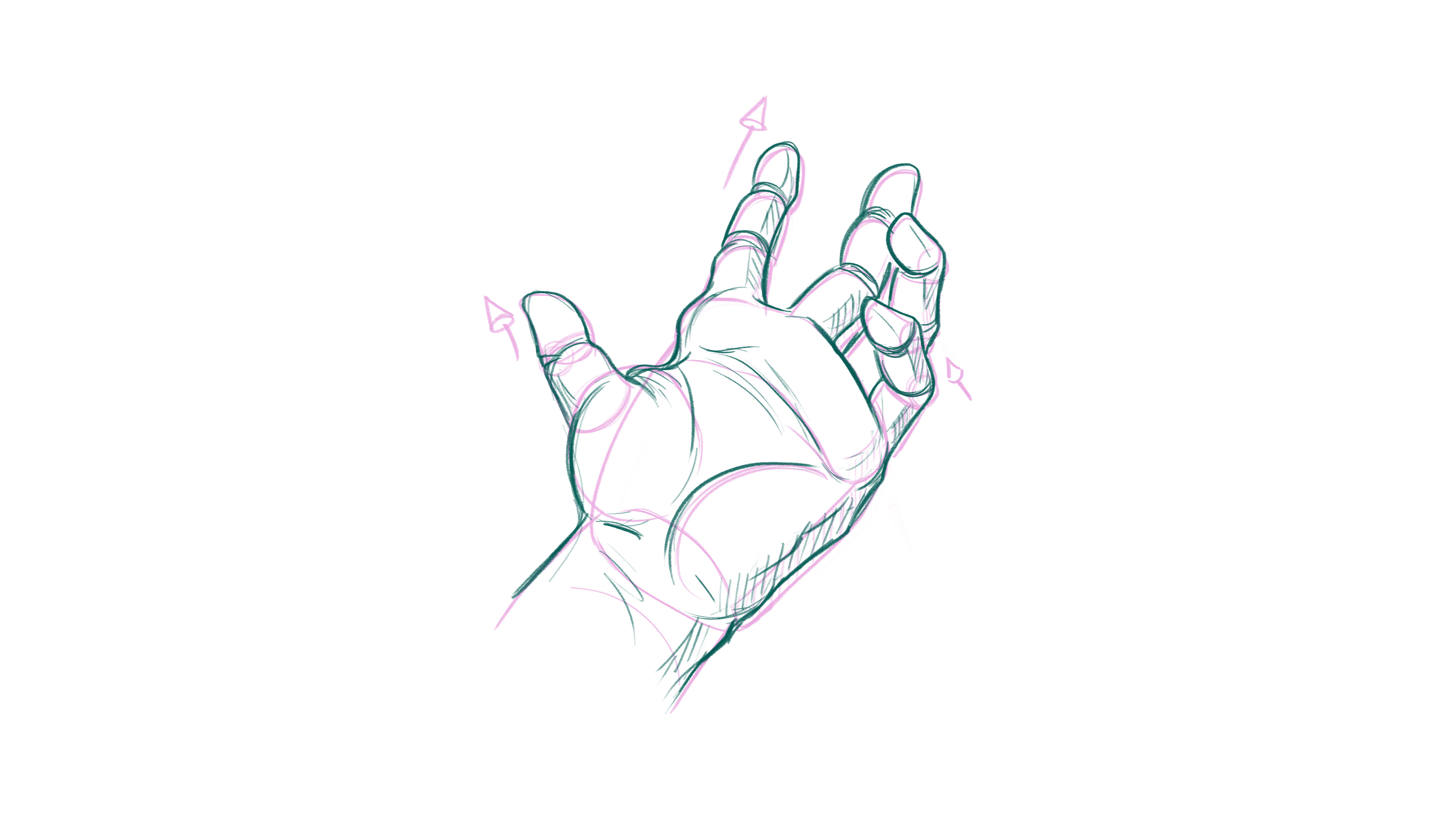
We're working digitally in our examples, so I'll knock back the opacity of the planar drawing here to begin to find the forms I see on my own hand. If you're working traditionally on paper, be sure to start out light and gradually build up volume and forms with heavier lead only as you get to the end of your study.
From here, you can use the planar view as a guide to help lay in the forms of your own hand as you look at it. Be careful to take note of how the forms curve around each other and also bear in mind the silhouette of your hand. In the example above, you can see where I've deviated from the pink line and instead used it as a guide to find where the forms turn in space.
07. Drawing hands: Begin to lay in detail
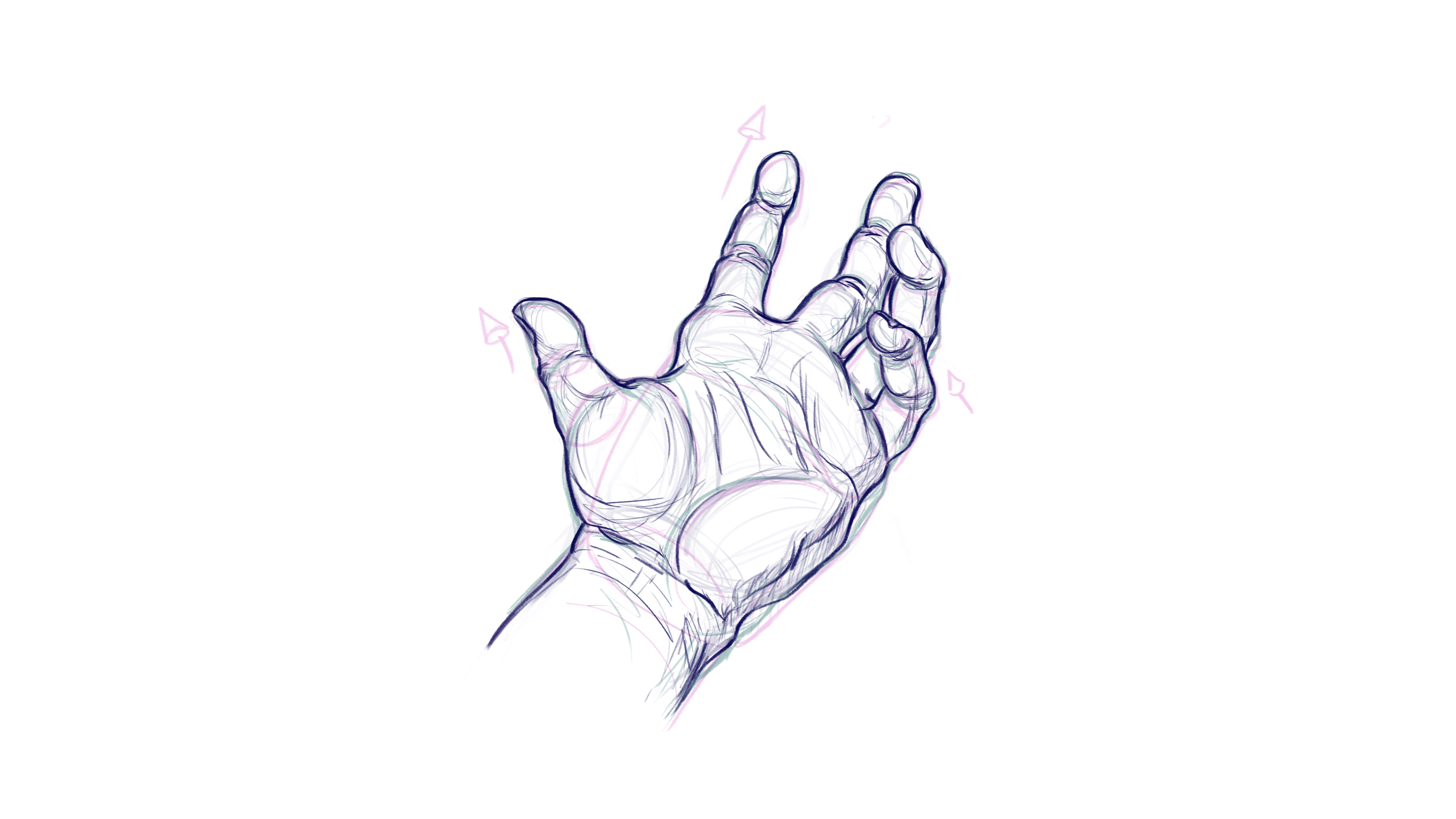
Now you can push back the first two layers, or switch to a heavier lead to begin to lay in those details. You can see how helpful the construction of both the planar view drawing and the gesture drawing really help me place details like wrinkles and creases in the hand. I can also begin to place fingernails and render out the side of the palm.
Next page: An in-depth look at the structure of hands
How to draw hands: more tutorials
Current page: Step-by-step guide
Next Page The anatomy of the hand
Brynn Metheney specializes in creature design, fantasy illustration and visual development for film, games and publishing. She lives and works in Oakland, California.
Related articles
Source: https://www.creativebloq.com/art/how-draw-hands-51620226
0 Response to "How to Draw Hands Xabio Arts"
Publicar un comentario